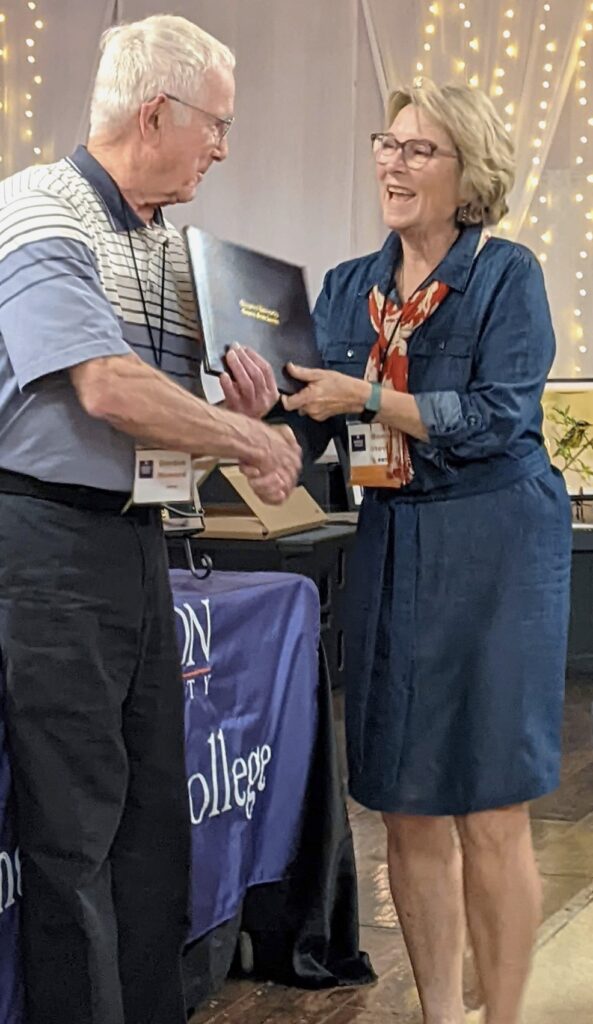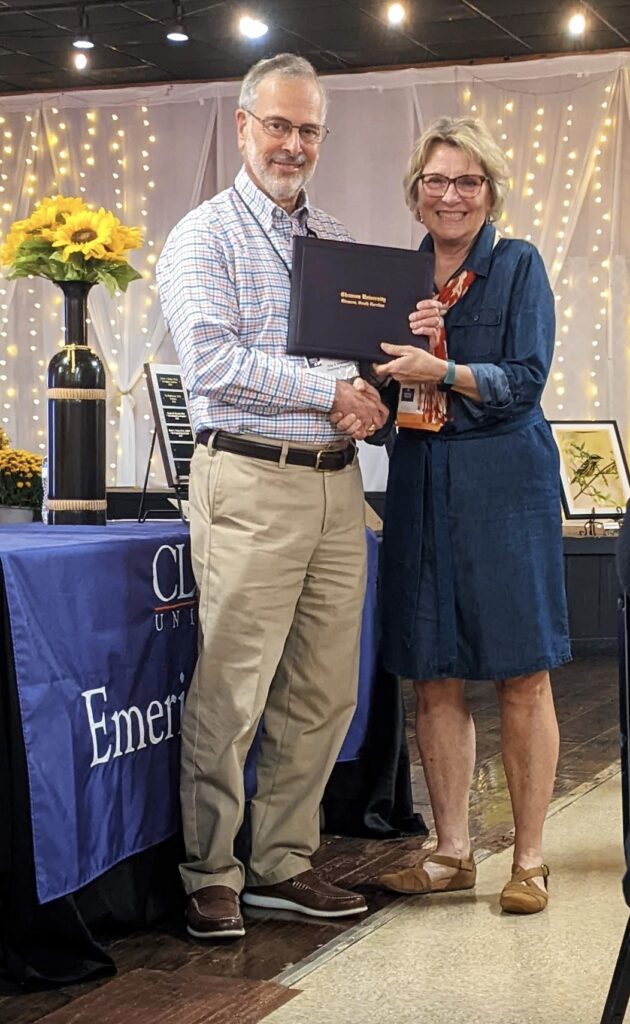[ad_1]
The Clemson Emeritus College gathered on Tuesday, October 3 for the annual Fall Picnic and Business Meeting. Approximately 150 emeritus faculty enjoyed great food and conversation while welcoming new members. During the meeting, the group evaluated, voted upon and passed changes to the Emeritus College bylaws and strategic plan, and the college awarded the prestigious Emeritus College Community Service Award to two very deserving Emeritus faculty for their outstanding decades of community service.
Gordon Howard, Professor Emeritus of Parks, Recreation and Tourism Management
Since 1984, Gordon has offered his services as a licensed bird bander on the grounds of the Crown Point State Historic Site in New York. The historic site is designated as an important bird area by the National Audubon Society, a bird conservation area by the state of New York and is referred to as a banding ‘station’.
Bird banding is an effort to track different species of migratory birds that pass through the region every year in order to collect ecological data and improve conservation efforts. With climate change and deforestation, the unbroken string of the station’s banding records is becoming increasingly important. Presentations to groups and individuals who visit the station are designed to involve visitors with wildlife in a non-consumptive manner which include the visitor releasing a banded bird. In 1988 Howard began giving a Polaroid picture to each person releasing a banded bird to show friends and family. A follow-up Educational Certificate Program was begun in 1995 whereby tri-fold certificates are mailed to releasers which include an image of the bird, a brief life history of the bird species, the banding information and Clemson University’s support for the program.
In 1997, releasers began to be notified when “their bird” was captured at the banding station or at another location. After the station closes each year Gordon enters the data into the state and federal government databases, writes the Atlantic Flyway Report and sends a summary report to each visitor. In 2015 Howard also began an apprenticeship program of future banders. In addition to banding, two tail feathers are collected from “target species” as part of the stations third year of cooperation with the Bird Genoscape Project, a hemisphere wide avian genetics research program managed by units of the University of California – Los Angeles and Colorado State University.

Barry Nocks, Professor Emeritus of City and Regional Planning
Nocks has devoted himself to public service over the past two decades. In 2001 his leadership as chair of the Reedy River Master Planning Committee paved the way for a plan that profoundly change Greenville. His vision of the Swamp Rabbit Trail and the revitalization of the Reedy River as a public amenity has been the impetus for Greenville’s urban planning priorities.
Nocks also served as a member and chairman of the City of Greenville’s Planning Commission from 2000-2009. He then chaired and served as a member of Greenville’s Design Review Board from 2009 to 2017, during the city’s unprecedented growth following the recession. Nocks also served as a volunteer on numerous Greenville planning committees focused on preservation, housing and strengthening the city’s zoning ordinances. As a certified arbitrator, his mediation skills played a valuable role in shaping major mixed-use developments. Most recently, he worked closely with the city to develop the Greenville 2040 Comprehensive Plan and the 2023 Development Code. Perhaps the greatest testimony comes from the many Master of City and Regional Planning alumni who continually ask for his advice in dealing with difficult planning issues. Nicknamed Yoda by his peers, Nock’s wisdom and tireless efforts in public service have made Greenville one of America’s most livable communities.

[ad_2]
Source link
